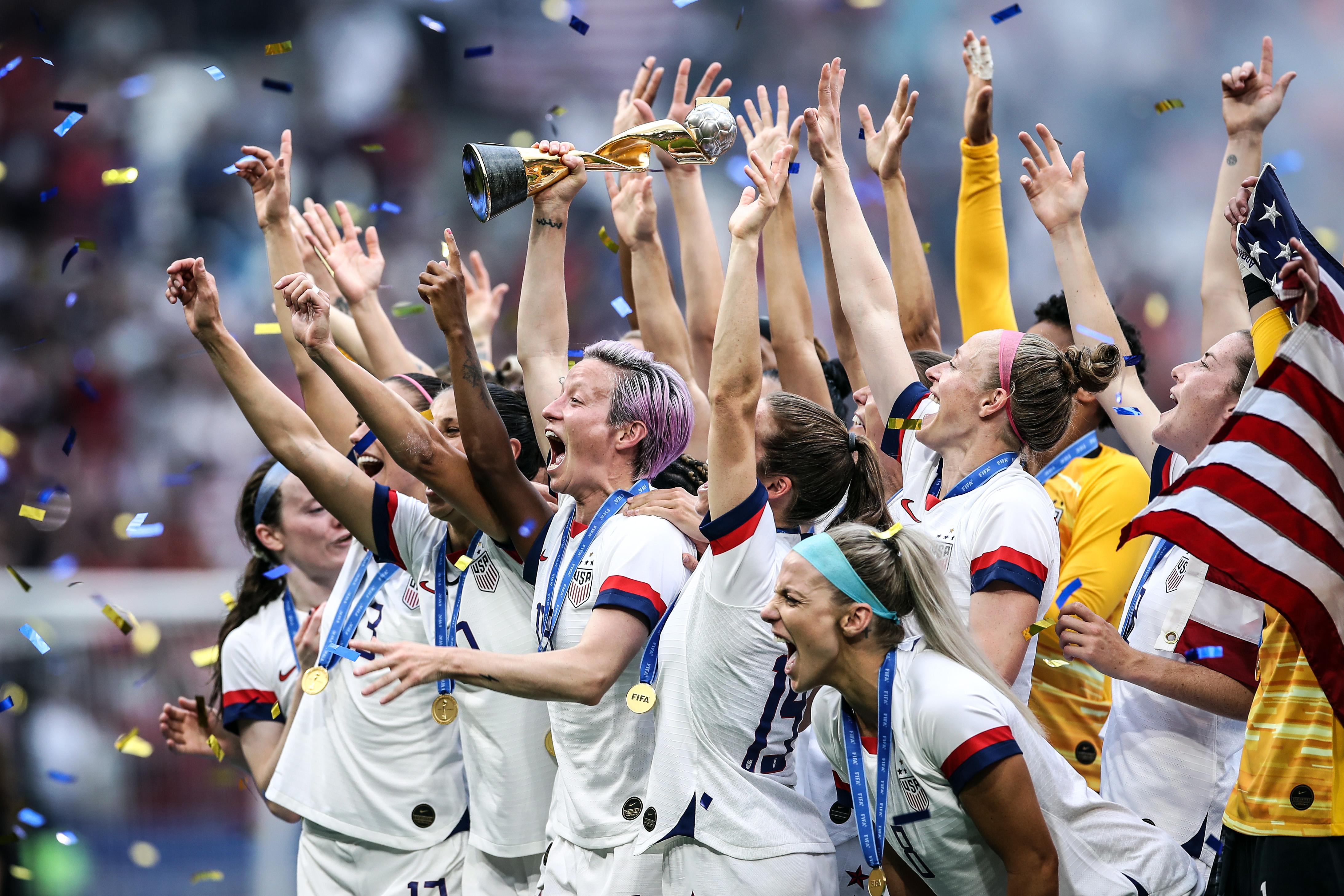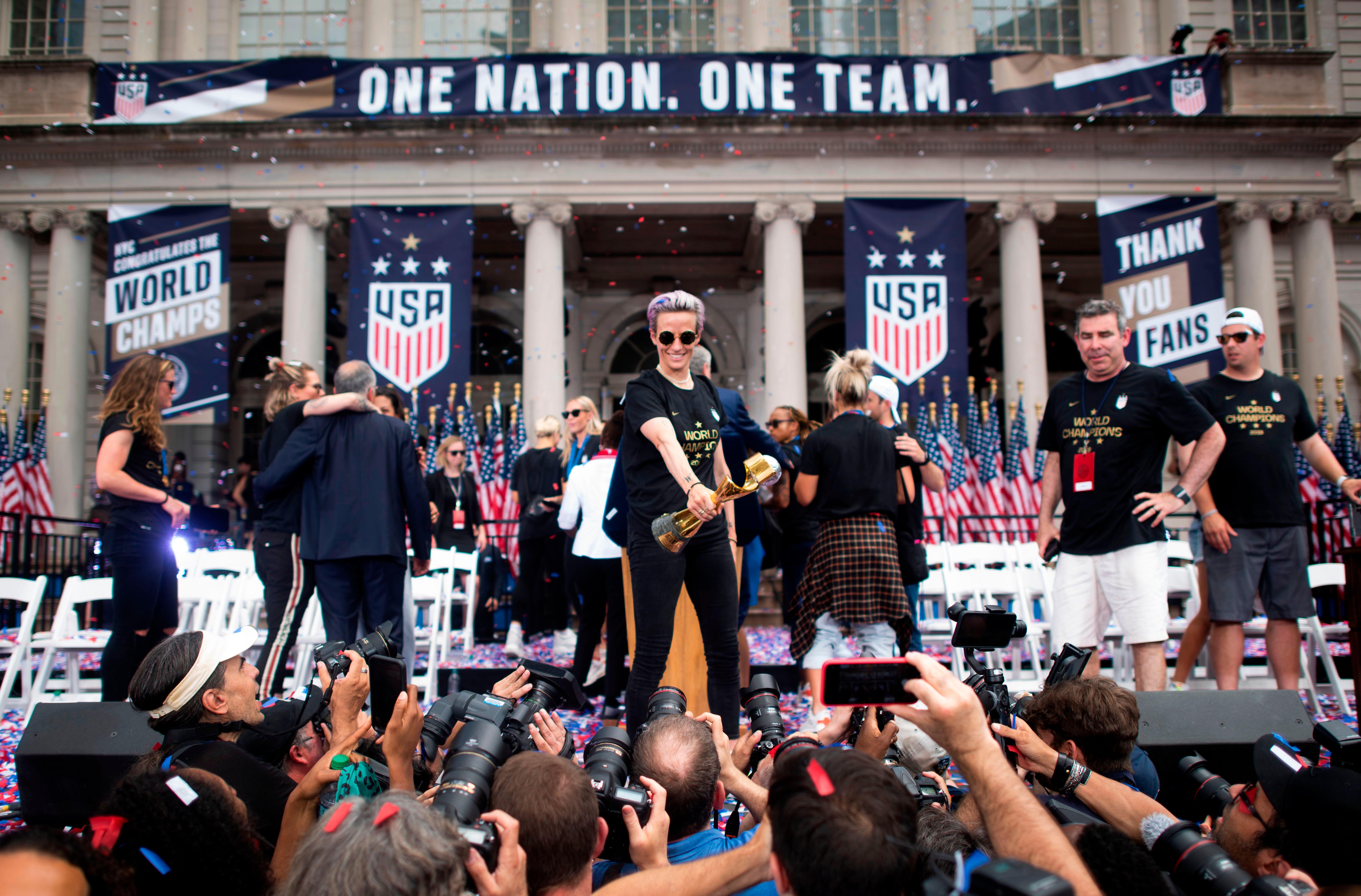
U.S. Soccer won't pay the women's team equally because the men have 'a higher level of skill'
By Mark PygasMarch 11 2020, Updated 4:21 p.m. ET
The United States Soccer Federation (USSF) and members of the US Women’s National Team (USWNT) are engaged in a lawsuit over equal pay. The lawsuit was filed by members of the team just before they won the FIFA Women's World Cup for the fourth time in 2019.
The winning US team received $4 million in prize money, with $30 million being handed out to competing teams in the women's tournament. In the previous year's men's World Cup, the total prize money awarded was $400 million. That's ten times as much.

The lawsuit, filed with the US District Court in Los Angeles in March 2019, stated: "Despite the fact that these female and male players are called upon to perform the same job responsibilities on their teams and participate in international competitions for their single common employer, the USSF, the female players have been consistently paid less money than their male counterparts."
"This is true even though their performance has been superior to that of the male players, with the female players, in contrast to male players, becoming world champions."
Now, there's been an update to the lawsuit. The USSF filed documents in an attempt to prove that it has not discriminated against members of the USWNT based on their gender.

Buzzfeed reports that the USSF argued that, under the Equal Pay Act, “the job of a [men’s national team player] carries more responsibility within US Soccer than the job of a [women’s national team] player.”
USSF went on to suggest that there are biological differences and “indisputable science” to argue that the women's team should be paid less. They added that the men's team “requires a higher level of skill” than the women’s team.
The filing by the USSF suggested that the women's team was "ignoring the materially higher level of speed and strength required to perform the job of an [men's team] player.”
“The job of [a men's team player] (competing against senior men’s national teams) requires a higher level of skill-based on speed and strength than does the job of [women's team] player (competing against senior women’s national teams).”
The federation also argued that the men have averaged three times the television viewers of the women during the last three years for matches run by the USSF.
“[Men's teams] players have responsibility for competing in multiple soccer tournaments with the potential for generating a total of more than $60 million in prize money for U.S. soccer every four years,” they added.
“[Women's team] players compete in only one soccer tournament every four years that has the potential to generate any prize money at all, and most recently that amounted to one-tenth of the amount the [men's team] players could generate.”
“Do you think that the team could be competitive against the senior men’s national team?” a USSF lawyer asked women's team member Carli Lloyd in the filing.
“I’m not sure,” Lloyd said. “Shall we fight it out to see who wins and then we get paid more?”
A lawyer went on to ask another team member, Alex Morgan, “Do you think it requires more skill to play for the US Men’s National Team than the US Women’s National Team?”
“No,” Morgan replied. “It’s a different skill.”
It's worth noting that while the women's team has won the World Cup a total of four times, the men's team is yet to win the title. The men's team did not qualify for the 2018 World Cup.
The USSF went on to argue that the US men's team often face hostile fans at games in Mexico, Central America, and the Caribbean. They suggested that this means the men work a more demanding job than the women.
Molly Levinson, a spokesperson for the women, said that the claims made in the filing are from “the Palaeolithic Era” as if “made by a caveman.”
“Literally everyone in the world understands that an argument that male players ‘have more responsibility’ is just plain, simple sexism and illustrates the very gender discrimination that caused us to file this lawsuit to begin with.”
The team said during their filing: “Passing on the discriminatory prize money differential of FIFA to the federation is exactly the perpetuation of discrimination that the [Equal Pay Act] seeks to remedy."
“USSF cannot rely upon a third party’s discrimination as a justification for its own decision to discriminate in World Cup compensation between the [men's team] players and [women's team] players."
“A third party’s payment to USSF — an amount that USSF did not even know at the time it negotiated either team’s World Cup compensation provisions — is not a job-related factor that … can justify a wage discrimination."
The USSF and USWNT will face off in a jury trial in May, with the team asking for $67 million in back pay for what they claim is a violation of the Equal Pay Act.
Earlier this week, USSF president Carlos Cordeiro published an open letter claiming that they had offered an equal pay structure with the men’s national team, which the women had rejected.
Molly Levinson, a spokesperson for the team, responded by saying that USSF “did not and has never offered equal pay to the women players.” Lawyers for the team argued that the offer was based on a contract the men’s team had negotiated nine years ago in 2011, which the men's team is currently renegotiating.
